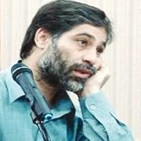
d: 2010
Farid Baghlani
Summary
Name:
Nickname:
The Cyclist KillerYears Active:
2004 - 2008Status:
ExecutedClass:
Serial KillerVictims:
16Method:
BludgeoningDeath:
November 13, 2010Nationality:
Iran
d: 2010
Farid Baghlani
Summary: Serial Killer
Name:
Farid BaghlaniNickname:
The Cyclist KillerStatus:
ExecutedVictims:
16Method:
BludgeoningNationality:
IranDeath:
November 13, 2010Years Active:
2004 - 2008bio
Farid Baghlani was born in 1968 in the southwestern Iranian city of Abadan. He was an Iranian serial killer known as "The Cyclist Killer." Details about his early life are limited, but it is known that he worked as a laborer and gardener for affluent families in Abadan. He was married and had four children.
He had prior convictions for assaulting women, serving one year in prison in 1995 and four years in 1999. While incarcerated, he developed a resolve to commit more severe crimes upon release.
murder story
Between 2004 and 2008, Baghlani embarked on a series of brutal murders, targeting primarily women and girls in the cities of Abadan and Khorramshahr. His modus operandi involved riding his bicycle to secluded areas, where he would attack his victims from behind using an iron bar, inflicting fatal head injuries.
His first known victim was Nour Pour-Ali, a young girl murdered in late 2004 near Khorramshahr. After fleeing the city to evade suspicion, he returned months later and resumed killing. On September 22, 2005, Baghlani attacked a ten-year-old girl near the Shatt al-Arab River, striking her in the head with an iron bar. When the victim’s cousin, Hossein, witnessed the attack, Baghlani killed the boy as well to eliminate the only eyewitness. Both children were buried in a sand dune. On November 6, 2005, he murdered 13-year-old Khadijeh Moghaddam, then began altering his methods to attack more efficiently, usually striking victims from behind.
Between late 2005 and 2006, Baghlani killed multiple victims, including Lamieh Savari (28), Mahin, and Fatemeh Naseri (12). The brutality of these murders intensified, Baghlani often used an iron bar to crush victims’ skulls, sometimes burying their bodies in sand dunes or dumping them near the Bahmanshir channel. On July 16, 2006, he murdered 11-year-old Maryam Haddadi, stealing her jewelry afterward, and a month later killed 9-year-old Seyeh Atefeh Pourmahmoud. His next known victim, 9-year-old Narges Khalafi, was beaten to death after he struck her with a stick while cycling past her. By the end of 2006, the number of victims had grown alarmingly high, but police had not yet identified a single suspect.
During December 2006, he murdered 40-year-old Nadimeh Maarezh and 45-year-old Amina Shafiei in April 2007. Shortly after Shafiei’s killing, Baghlani was arrested but released on bail when investigators failed to gather sufficient evidence. The release allowed him to continue killing. In September 2007, he murdered another woman identified only as Khadijeh, aged about 50, and in April 2008, he killed Khadijeh Raisi, disposing of her body by throwing it into a river. His final known victim was 9-year-old Fatemeh Kroushat, kidnapped on May 26, 2008, and beaten to death in an abandoned building.
Baghlani’s arrest came in November 2008 after a rare surviving victim, a woman named Fawzia, identified him in a photo lineup. She had been attacked and stabbed in September but managed to survive and alert authorities.
In total, Baghlani confessed to 16 murders, including 15 females and one male, aged between 9 and 50.
He told investigators that his motivation stemmed from a deep hatred toward women. He described feeling “a little guilt” after each killing but admitted that it was never enough to stop. A psychiatric examination found him sane and competent to stand trial. Facing overwhelming evidence, Baghlani later recanted his confession, claiming police had tortured him into confessing. The court rejected this claim. He was convicted in 2010 of multiple counts of murder and sentenced to death.
On November 13, 2010, Farid Baghlani was executed by hanging in Karun Prison in Ahvaz, with his parents present.